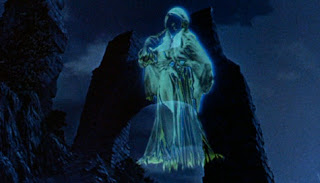Deadgirl
2008
Dirs. Marcel Sarmiento & Gadi Harel
Rickie (Shiloh Fernandez) and JT (Noah Segan) decide to bunk off school for the afternoon and go to a nearby abandoned psychiatric hospital to drink beer. Wandering through the labyrinthine basements beneath the hospital they eventually find a living-dead woman chained to a table. Ricky flees, but JT remains and rapes her. He eventually discovers she cannot be killed and becomes obsessed with her. The ostracised Rickie wrestles with his conscience and decides to somehow free the undead woman.
‘She’s just a dead girl.’
Zombie films are ripe for reinterpretation and enable filmmakers to comment and critique certain aspects of modern society. Deadgirl makes its mark by twisting the usual conventions of zombie flicks into a dark fable about sexual abuse, predation and consent. It unfurls as a shadowy, harrowing rite of passage about a young man who preys on a vulnerable, captive woman. She's (un)dead and unlikely to comprehend what is happening, but does this make it okay? One of the most horrific elements of the film is its unflinching depiction of the depraved depths JT and his friends sink to, and what they'll do if they think they can get away with it. They urge each other on, dare each other, and it becomes a game to them, a moment to prove themselves to their peers. With its troubling premise, Trent Haaga's screenplay attempts to examine the aftermath of JT's morally vacuous decisions and explore the consequences of rape.
Rickie becomes the focus of the story, and when he begins to realise just how disturbed JT is we follow him as he wrestles with his conscience and attempts to do the right thing no matter how difficult it is or how much his peers ostracise him. His inability to stand up to his friends, particularly the increasingly deranged JT, is where much of the tension stems from. People are flawed, imperfect. We don't speak up when we should, and we then regret it. This is Rickie's moral quandary, and Haaga exploits the universality of it to create tension and demonstrate the fractures in the friendship of Rickie and JT. Deadgirl raises important questions about the moral culpability of a society that makes excuses for rape and sexual abuse when it says stuff like 'boys will be boys', or 'she was asking for it, walking alone at night, in that dress.'
‘She’s just a dead girl.’
For the most part, the filmmakers approach the subject matter in a serious manner posing questions about morality, the objectification of women, and societal nonchalance. Proceedings drift along as lethargically as the disaffected protagonists and, perhaps due to the somewhat tranquil pace, we are slowly but surely lowered into an ever disturbing space. We never find out anything about the titular woman, though. JT and Rickie speculate about who she is and how she ended up there. None of these things matter to a predator like JT. He doesn't even see her as human anymore. She's a commodity. She could be anyone. She could be all women. It doesn't matter to him. Her plight speaks of countless anonymous women who are preyed upon by boys being boys. Portraying the dead girl is actress Jenny Spain, whose starkly compelling performance veers between feral ferocity and unflinching vulnerability with precision. Though she has no dialogue, Spain is still able to convey so much emotion with only her eyes. There is a brief moment of poignancy when she tenderly touches Rickie's hand. Miniscule moments like this, while fleeting, reinforce her humanity and vulnerability. Or what remains of it.
While there is no denying the disturbing subject matter, echoing the likes of Jörg Buttgereit's Nekromantik, at times Sarmiento and Harel adopt a strangely poetic approach to proceedings. They draw from a pretty sombre palette – the vast majority of the film unfolds in the eerie basement of the hospital and eventually the stifling air of bleakness becomes wholly overbearing. A touch of the fantastical emerges in the form of a Cerberus-like dog that appears to be guarding the way to the ‘underworld’; the hell the two will unleash by opening the door. Forays to the surface world are usually under the cover of night; though the sun-dappled daytime excursions prove equally as discomfiting as we are presented with a cold, unfeeling world, where the only human contact is by means of violent altercations or unrequited adoration from afar. Lyrical interludes splice the stark drama as Rickie attempts to fathom the darkness he now finds himself in and suffers a complete crisis of conscience. A brief opening montage of empty classrooms and hallways perfectly captures the empty morality of what will follow – these characters exist in an all-too-real world, where sex is just a commodity and no one else's feelings matter.
The sombre tone rarely shifts – cheap laughs are avoided – even a couple of scenes that are humorous, are darkly, grimly so. The dreamy soundtrack courtesy of Joseph Bauer is at times pierced by an intensity guaranteed to conjure up an unshakable queasiness. As events gush towards the climax, the violence escalates and the blood flows free. JT and his accomplice Wheeler have by this stage gone well beyond the point of no return, their actions warping their perspective. They decide to exploit their situation further, and make money from it, by obtaining more women and charging their friends to have sex with them. A clammy, morbid montage reveals the tragic, twisted and thoroughly bleak denouement.





